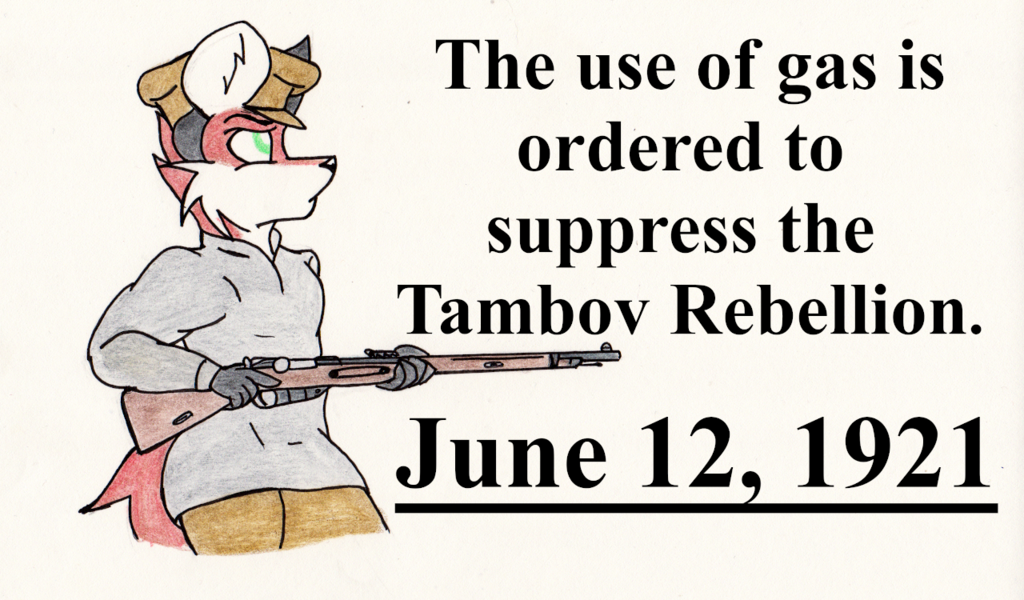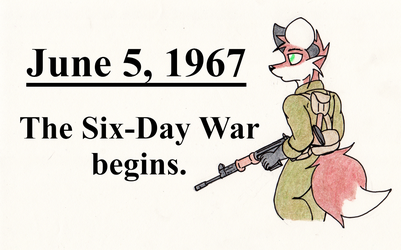Sign In
CloseOn June 12, 1921, the Red Army and the Communist Party order the use of poison gas to suppress the Tambov Rebellion. The rebellion had begun in August of the previous year in reaction to Soviet seizures of grain from peasant farmers in rural Russia in order to support the Red Army and urban populations during the Russian Civil War. These seizures were often violent and took little to no consideration for the needs of the peasants, leaving many to starve. Follow one such seizure in a small village in the Tambov Governorate in the Russian SFSR on August 19, 1920, the victimized peasants took up arms to recapture the stolen food and in the process killed several of the Red Army soldiers that had been sent to seize it in the first place. The rebellion quickly spread across the region and Alexander Stepanovich Antonov, a member of the Left-Socialist Party, emerged as a leader for the rebels and began organizing them into a force with which to face to the Communist Party and its forces. By October 1920, only the city of Tambov and a few other urban areas remained firmly under control of the Communists (Bolsheviks).
The situation in the Tambov Governorate began to change in February 1921. A committee chaired by Vladimir Antonov-Ovseyenko to suppress the peasant rebellion was formed by the Communist leadership and mass deportations followed shortly thereafter. In May, Mikhail Tukhachevsky was assigned to the region to use military force to end the rebellion and was given command of forces from the Red Army, the Cheka (the Bolshevik secret police), and the Komsomol (the Communist youth program). The move to suppress the rebellion heavily brutalized the civilian population of the region. If a weapon was found in a home, the eldest working member of the household would be executed. The same was true if a family had been caught hiding a rebel, but the family would also have their property and possessions seized and the family deported. Civilians would be summarily executed should they refuse to provide their name when asked by Communist authorities. The brutality and oppression coupled with an end to the forced collection of grain eroded support for the rebels and forced them from the villages (which were either occupied by Communist forces or threatened with destruction should they harbor rebels) into the forests. Antonov and the rebels were soon surrounded. In June, chemical weapons were fielded by the Communist forces with orders to kill everyone in the forests with gas. The peasant army was soon destroyed; however, Antonov escaped only to be killed in a firefight the following year. By September 1921, only scattered pockets of resistance remained. By the following year, the Tambov Governorate had been pacified.
An estimated 240,000 people died as a result of combat, executions, and imprisonment in Soviet concentration camps during the suppression of the Tambov Rebellion.
Submission Information
- Views:
- 291
- Comments:
- 0
- Favorites:
- 3
- Rating:
- General
- Category:
- Visual / Traditional




